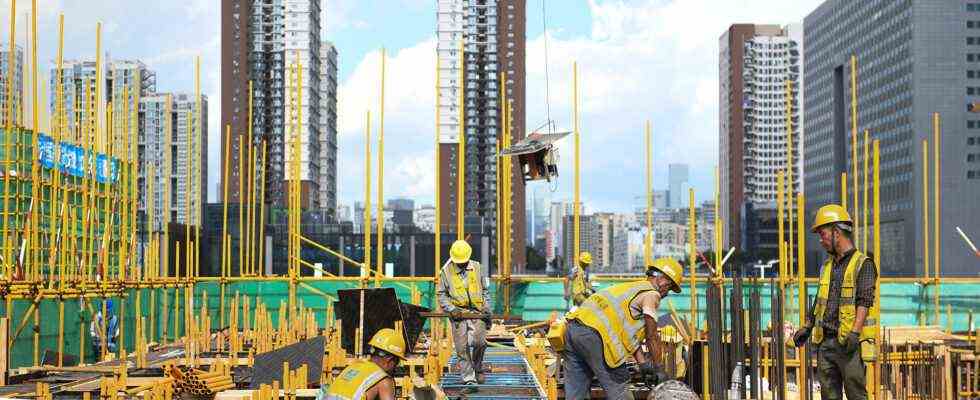Status: 01/18/2022 2:08 p.m
There has been speculation for months about the means by which China’s government could avert a collapse of the country’s large real estate groups. Now there seems to be a way.
In the crisis on the Chinese real estate market, after months of relative restraint, the Beijing leadership is sending signals of relaxation and sending state-owned companies to rescue operations.
Today, the state-controlled Shanghai Pudong Development Bank announced a five billion yuan bond for construction projects. Experts expect that other financial institutions will follow the example and that the real estate groups, which are in serious liquidity troubles, will be supported.
Statements from the Bank of China also indicate this. Central bank representative Zou Lan explained today that the People’s Republic is banking on continuity and stability when it comes to real estate financing. Turnover and capital flows in the real estate market increasingly returned to normal.
Also financial injection for Evergrande
The focus of the crisis is Evergrande, the second largest real estate developer in the country, which has been in payment difficulties for months. Last week, the group just escaped bankruptcy with a payment deferral for a yuan bond.
Here, too, a state-owned company rushed to help – albeit only on a modest scale. Minmetals International Trust bought Evergrande’s assets in two construction projects in southern China. As can be seen from official announcements, around eleven million euros have been paid for this. Minmetals explained the unusual step, among other things, by wanting to help Evergrande and ensure stability.
“Market gets used to failures”
This was probably just a first step. The former model company in the industry owes around 300 billion dollars, especially to Chinese lenders. Evergrande has had to use grace periods for interest payments on its bonds several times. Real defaults have already occurred on dollar bonds.
But here, too, the Chinese authorities are trying to smooth things over. The market is getting used to defaults by some heavily indebted property groups, Jin Xiandong of the National Development and Reform Commission said today. It is not to be expected that this will generally affect foreign bonds issued by Chinese companies.

